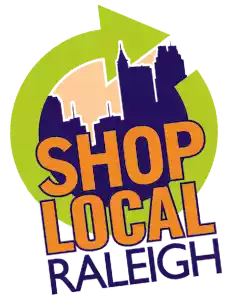Local businesses beat the holiday performance of many national chains, but continue to experience difficulties with policies tilted in favor of large companies
FOR IMMEDIATE RELEASE
MINNEAPOLIS, MN (Feb. 11, 2015) – Independent businesses saw strong sales growth in 2014 as more consumers embraced the “buy local” movement and ditched big companies in favor of supporting local retailers and small-scale producers, according to a large national survey released today.
The survey, which is now in its 8th year and was conducted by the Institute for Local Self-Reliance in partnership with the Advocates for Independent Business, gathered data from over 3,000 locally owned businesses. The respondents reported brisk sales in 2014, with revenue growing 8.1% on average in 2014, up from 5.3% the previous year. Among independent retailers, which comprised about half the sample, revenue increased 5.1% in 2014, versus 2.3% in 2013. Holiday sales at local stores grew too, by an average of 4.8%, beating the performance of many national chains and coming in well ahead of the 0.9% decline in December retail sales reported by the U.S. Department of Commerce.
The survey results suggest that the strength of the independent sector is owed partly to an improving economy and partly to the spread of the “buy local” movement. Businesses located in cities with active Local First campaigns reported sales growth of 9.3%, compared to 4.9% for those elsewhere. They cited a wide range of direct benefits from these campaigns, with half saying the initiatives had generated new customers and 45% saying they had resulted in more awareness and support among city officials.
Despite these gains, independent businesses reported that they still face a decidedly uneven playing field. Nearly three-quarters of the local retailers surveyed said that the fact that many online retailers are not required to collect sales tax had negatively impacted their sales, with 39% describing the level of impact as significant. “As a local business owner with a brick-and-mortar location, we are automatically at a 8.1 percent price disparity because we are required to collect local sales tax,” commented a business owner in Arizona. With Congress failing to pass an e-fairness bill last year, the survey found that a large majority of independent retailers are now backing state legislation to level the playing field.
The survey also found that difficulty accessing credit continues to be a major barrier for new and growing small businesses. Of those who sought a loan in the last two years, 30% said they had been unable to obtain one. Businesses owned by people of color and women fared even worse. Over 44% of minority-owned businesses seeking financing and 35% of those owned by women failed to secure a lender. The survey findings echo federal data that show that bank lending for big businesses is well above its pre-recession peak, while small business lending remains depressed.
Large companies exercising their market power to win better pricing and terms was cited as another key issue, with more than half of independent retailers rating it as a very or extremely significant challenge. Nearly two-thirds of all respondents said they believed government should more vigorously enforce antitrust laws against dominant firms, while only 9 percent opposed increased enforcement.
“More people are seeking out independent businesses, which we know from academic research is great news for job creation, income growth, and the well-being of communities,” said Stacy Mitchell, senior researcher at ILSR. “Now we need policymakers to step up and create a level playing field to allow locally owned businesses to really thrive.”
Several national business groups offered reactions to the survey’s findings:
“This report adds to the evidence that communities and states will enjoy greater success in creating good jobs and increasing net revenues by nurturing community-based entrepreneurs, rather than vying to lure companies from afar,” said Jeff Milchen, co-founder of the American Independent Business Alliance.
“‘Local First’ has changed our cultural narrative, as this report shows,” said Michelle Long, executive director of BALLE (the Business Alliance for Local Living Economies). “But Local First is more than just a catchy slogan. It has reminded us that our purchases impact other human beings. That there is the possibility of a relationship and real care in our exchanges. If policymakers are serious about fostering an economy that works for more people, they can’t forget that ‘middle class economics’ starts on Main Street with local independent business.”
“This latest survey once again demonstrates the power and vitality of local, independent businesses,” said Oren Teicher, CEO of the American Booksellers Association. “Facts are facts — the numbers make clear that innovative and hard-working entrepreneurs are outperforming their chain competition, spurring long-lasting job creation, and showing the difference a healthy local economy can mean for communities. It’s now time for lawmakers to commit themselves to policies that level the playing field, promote localism, and sustain smart growth.”
“The authenticity and community that local businesses provide cannot be manufactured. Local businesses have what customers want. They continue to thrive despite an unequal playing field,” said Parker Karnan, Executive Director of the Independent Running Retailer Association.
“Independent businesses are the backbone of communities, and the strong sales growth these businesses see will have a ripple effect, benefitting their communities by keeping the spending local,” said Bill Brunelle of Independent We Stand.
“Amidst increasing competition and pressure from the Amazon and other internet behemoths, and consolidation big national chains, TriMega believes the buy local message and movement is critically important in today’s marketplace, as do a growing number of our independent office product dealer members. The study’s finding provide optimism that both business and retail consumers are responding favorably to buy local first initiatives,” said Michael Morris, Vice President of Marketing for TriMega Purchasing Association.
Original Article: http://ilsr.org/2015-independent-business-survey-independent-businesses-report-strong-sales-growth/







